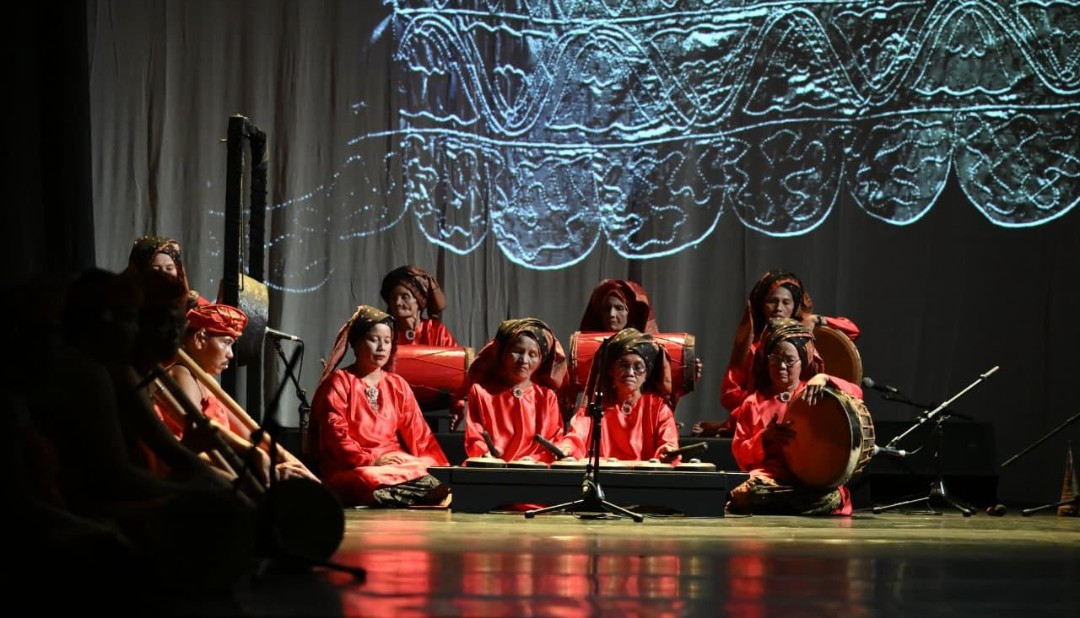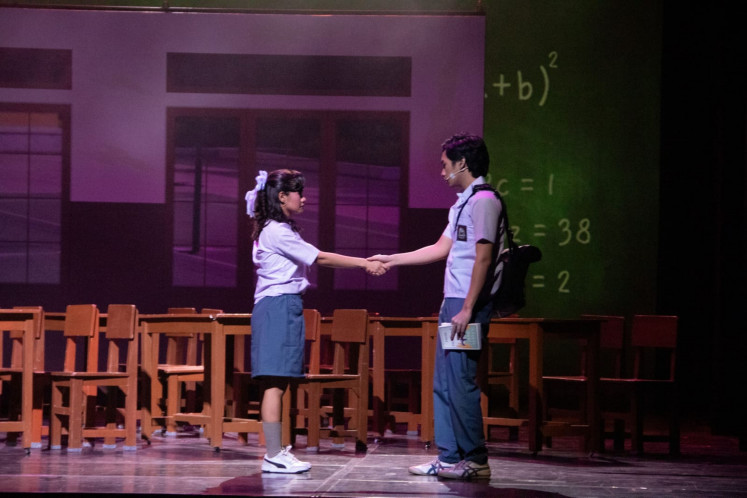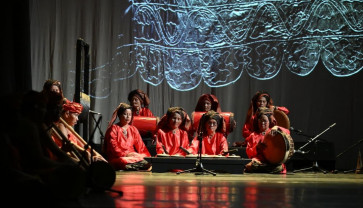Popular Reads
Top Results
Can't find what you're looking for?
View all search resultsPopular Reads
Top Results
Can't find what you're looking for?
View all search resultsPanggung Maestro spotlights West Sumatra’s ancestral arts
Through rare performances, sacred instruments and master artists brought from remote highland villages, the annual performance reveals West Sumatra’s living heritage, its ancestral music, dance and philosophy, as well as the elders who continue to safeguard it.
Change text size
Gift Premium Articles
to Anyone
 Sacred rhythms: The Gondang Baroguang group from Mapat Tunggul, Pasaman, Nagari Lubuak Gadang performs before a full-house audience on Oct. 29, 2025, at the Sunken Area of the National Museum in Central Jakarta. Asmar, 87, one of the maestros who plays gendang (double-headed drums), sat at the back on the far left. (Venny Rosalina/-)
Sacred rhythms: The Gondang Baroguang group from Mapat Tunggul, Pasaman, Nagari Lubuak Gadang performs before a full-house audience on Oct. 29, 2025, at the Sunken Area of the National Museum in Central Jakarta. Asmar, 87, one of the maestros who plays gendang (double-headed drums), sat at the back on the far left. (Venny Rosalina/-)
T
hunderstorms swept across Central Jakarta on Oct. 29, washing the city in cool gusts that left the night air crisp. Yet inside the Sunken Area of the National Museum, warmth and excitement pulsed through the hall as the full-house audience for Panggung Maestro sat transfixed before the ornately decorated stage.
Held at the museum on Oct. 28-29, Panggung Maestro is a recurring platform by the non-profit foundation Bali Purnati Center for the Arts that celebrates Indonesia’s master artists and the fragile traditions they safeguard. West Sumatra’s music and performing arts were among this year’s highlights, drawing rare appearances from some of the region’s most revered elders.
Onstage, two rows of elderly women in traditional West Sumatran attire sat gracefully on the floor, their hands moving with practiced mastery over the instruments. The gong, talempong (small kettle gongs), gendang (double-headed drums) and rebano (hand-held drums) erupted in precise, hypnotic rhythms of the Gondang Baroguang ensemble, casting a magnetic spell over the evening.
Sacred art of Nagari Lubuak Gadang
It was a rare privilege for the audience to witness the performance.
Gondang Baroguang, practitioners of the sacred art of Nagari Lubuak Gadang in Pasaman’s remote highlands, had never performed outside their village before. Even at home, the ensemble is heard only during Idul Fitri, Idul Adha and a few ceremonial occasions reserved for the local nobility.
“We, the pemangku adat [traditional custodians] of Nagari Lubuak Gadang, feel deeply proud to bring our traditional musical ensemble, believed to have existed since 1835, onto such a magnificent stage,” said Sarfin.


















